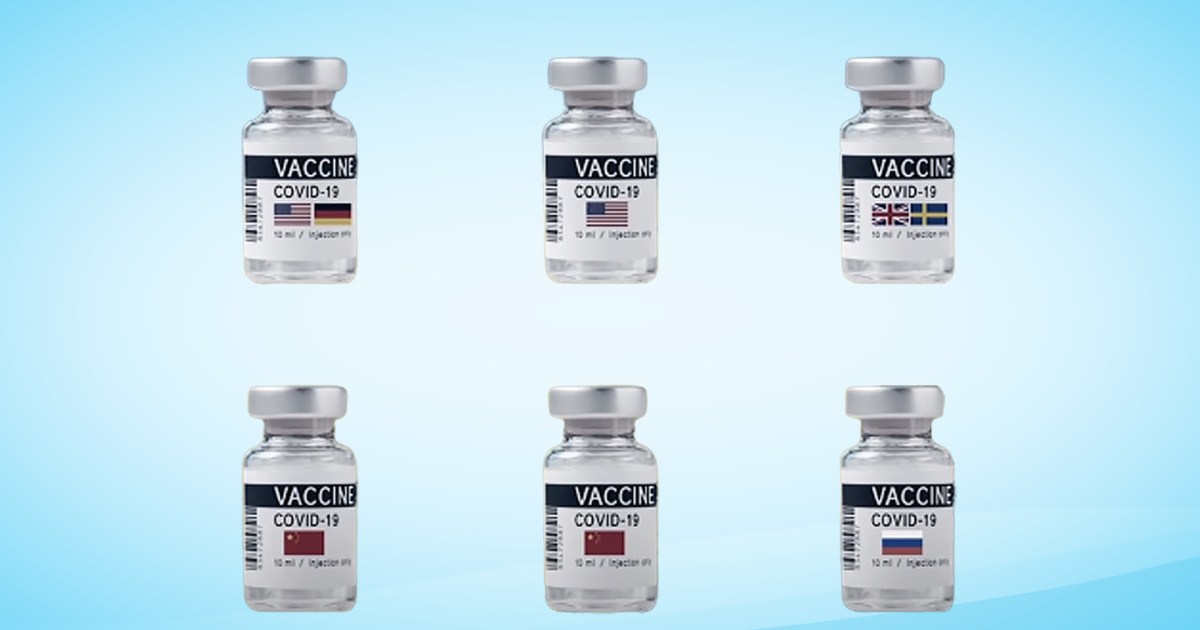The emerging corona virus "Covid-19" does not stop mutating, threatening to weaken the effectiveness of current vaccines, so what vaccines have great potential to address it?
Faced with this changing situation of the virus, it is necessary to know the type of vaccine that we can rely on more.
Researchers interviewed by Agence France-Presse believe that the biggest challenge is to speed up the adaptation of vaccines that have already been developed.
"I am not sure that we will not have to repeat the vaccination campaign in October," warned Yves Godin, an epidemiologist at the National Center for Scientific Research in France.
Several months ago, mutated copies of the virus that causes the "Covid-19" epidemic appeared, different from the versions against which the first vaccines were developed.
One of them is the British mutant, which has led to most of the new infections in France since last week.
It seems certain that this version, in its current form, raises the issue of infection spread rather than vaccine resistance.
Initial studies indicate the low effectiveness of the most prominent vaccines currently offered, compared to other mutated versions, especially the version that appeared in South Africa.
"There are faster and more adaptive technologies," says Sylvie van der Werf, a virologist at the Pasteur Institute in France, confirming that "it is clearly messenger RNA".
DNA sequence injection
And work vaccines "Pfizer-Biontech" (Pfizer-Biontech) and "Moderna" (Moderna) to directly inject the sequence of RNA, which prompts cells to manufacture the protein in the virus in order to accustom the immune system to it.
These sequences can be synthesized very quickly in the laboratory.
On the other hand, the vaccine "Astrazeneca-Oxford" (Astrazeneca-Oxford) and "Johnson & Johnson" depends on the "viral vector" technology, in which the genetic material is incorporated into cells, using to transmit a virus that already exists, but which is different from Corona Virus.
And development takes longer.
Less than a month ago, Moderna launched clinical trials of a new vaccine, while AstraZeneca pointed out that such a procedure would take 6 months, which is a quick deadline according to the standards.
But "it is not certain that there is a big difference between the messenger RNA and the viral vectors, when we take into account mass production," Julian Yang, a virologist at the University of Leicester, told AFP.
Vaccines that rely on mRNA require very low temperatures to maintain, which complicates the next steps for manufacturing the active substance.
Stay tuned for Valneva
These two classes of innovations could in any case be redeveloped much faster than conventional, so-called "inactive" vaccines.
However, the British government has high hopes that these vaccines will respond to the emergence of new mutated versions.
Among the anti-Coronavirus vaccines that have not yet been approved in Europe, one of them, developed by the French-Austrian company Valneva, will be distributed in the United Kingdom by the fall.
While vaccines based on messenger RNA and viral vectors focus on a small portion of the virus - the S protein, known as "spike" - inactive vaccines use the virus as a whole to develop the immune response.
In early February, the British Minister of State, Nazem Al-Zahawi, told the British Parliament that this "gives a much greater chance to reverse the mutants," considering that this vaccine may thus be "incredibly effective."
But "relying on a vaccine that does not need to be constantly modified," is something that raises suspicions of researchers interviewed by the French Press Agency, considering this very hypothetical.
"This has not been proven at the present time," said Etienne DeCrule, a specialist in emerging viruses at the National Scientific Research Center, hoping that it would be a "universal" vaccine that does not require modifications at all.
Backfire
He explained, "We have been trying to do this for 10 years against influenza, as unfortunately we have not succeeded yet. We can say that things are not that simple," noting that viruses tend, over time, to mutate, which allows them to escape from the existing vaccines.
Worse, over-reliance on vaccines with inactivated virus may be counterproductive.
Godan stressed, "Of course, this calls for a very broad response, but what we want first is a good response against protein spike."
He pointed out that "disrupting the virus may sometimes harm the protein," which may limit the effectiveness of the vaccine.

